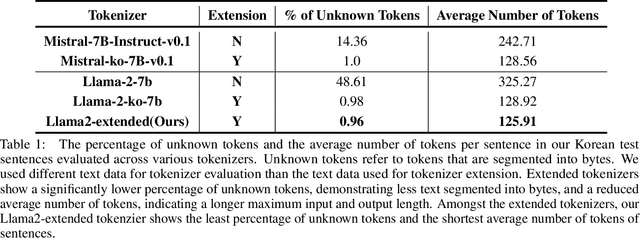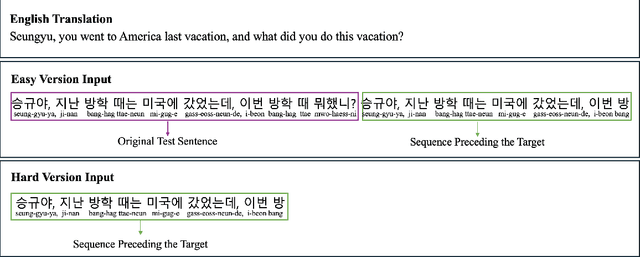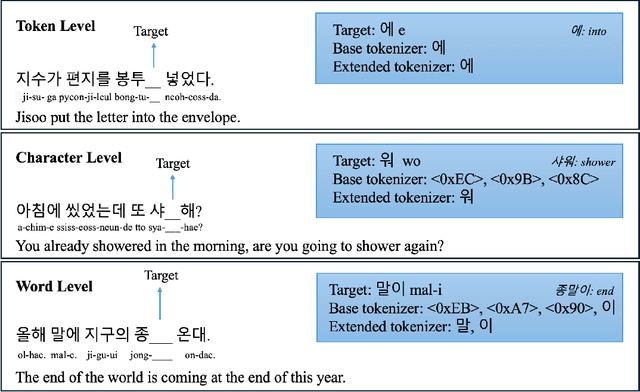How does a Language-Specific Tokenizer affect LLMs?
Paper and Code
Feb 18, 2025



The necessity of language-specific tokenizers intuitively appears crucial for effective natural language processing, yet empirical analyses on their significance and underlying reasons are lacking. This study explores how language-specific tokenizers influence the behavior of Large Language Models predominantly trained with English text data, through the case study of Korean. The research unfolds in two main stages: (1) the development of a Korean-specific extended tokenizer and (2) experiments to compare models with the basic tokenizer and the extended tokenizer through various Next Token Prediction tasks. Our in-depth analysis reveals that the extended tokenizer decreases confidence in incorrect predictions during generation and reduces cross-entropy in complex tasks, indicating a tendency to produce less nonsensical outputs. Consequently, the extended tokenizer provides stability during generation, potentially leading to higher performance in downstream tasks.
 Add to Chrome
Add to Chrome Add to Firefox
Add to Firefox Add to Edge
Add to Edge